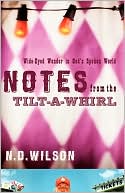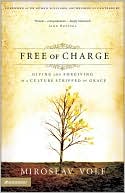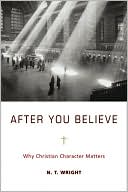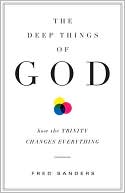A while back I heard a lecture from Daniel Taylor, an evangelical English Lit professor, about the importance of story. You can hear the audio or read the lecture in printed form (though the audio is much better than the article). It was an earthquake moment for me. The rumblings from that lecture are still overturning many things in my mind and life. One of the key statements Taylor made was “propositions are short hand for stories.” It’s an idea that certainly runs against the grain of many evangelicals. I recall hearing one rather well-known pastor describe the OT as primarily illustrative material of the NT, or more precisely of the epistles. Romans, Galatians, Ephesians, etc. those are the real epicenters of truth. The stories in the Bible are merely illustrations. But if Taylor is correct, and I think he is, then that perspective is upside down. Another pastor I once heard instructing fellow preachers stated that stories are the “hooks” upon which people hang ideas. Stories, he said, are thus very important, because people may not remember the idea that God is in control, but if you give them a hook, a story, it will bring that truth to mind. But again, if Taylor is correct, that line of thinking is backwards. Stories aren’t tools to remember truth. Stories are the truth. They are the real theology.
“God is good.” That is a true statement. But what does it mean and how do I learn what that means? Do I look up “good” in a dictionary? Do I do a word study on good in the Bible? Those things may help, but you need more. You need stories, because it is only through stories of God's goodness that you can ever truly know what “God is good” means. Propositions like “God is good” are only the sticky notes of truth. Open up the filing cabinet of your mind, or of reality for that matter, and you will see propositions everywhere. But those propositions are just the titles on the tab and not the contents of the folder. Open the folder and it’s all story. When I think, “My wife is beautiful,” I don’t sit and contemplate the meaning the word “beautiful.” I think of a thousand times I have encountered her and found all thoughts apart from her obliterated. That is, I think of stories.
If it sounds like I’m bashing propositions, rest assured that is not my intention. Propositions are essential. After all, I’m filling this whole article with them. And we must fill stories with them as well in order to communicate those stories. Furthermore, propositions are necessary to synthesize the essentials of story. They explain and interpret story. But we must keep propositions in their places. We must remember that propositions are merely the tabs of the folder and not the content. When we look at the Bible as a whole, it is clear that God certainly has preference for story. Even when the biblical authors aren’t telling stories, they are harkening our minds back to them, drawing conclusions from them. Jesus also seemed to prefer story. How many times was Jesus asked a question, a simple question that demanded a proposition in response. But Jesus didn’t give a proposition. He gave them a story. Why? Because he wanted to evade the point? No, he gave story because story is the point, because a proposition is nothing a part from story. “God loves sinners” means nothing without a story like that of the prodigal.
So is this merely intellectual rambling? I don’t think so. This is a seismic shift, at least it is for me, that shakes up pretty much everything. It certainly alters the way I read my Bible, but it does far more than that. Over the next few weeks, I hope to explore a bit on how the centrality of story transforms the way we think and live. I hope it is as helpful to you as it is to me.
Tuesday, February 8, 2011
Subscribe to:
Comments (Atom)








